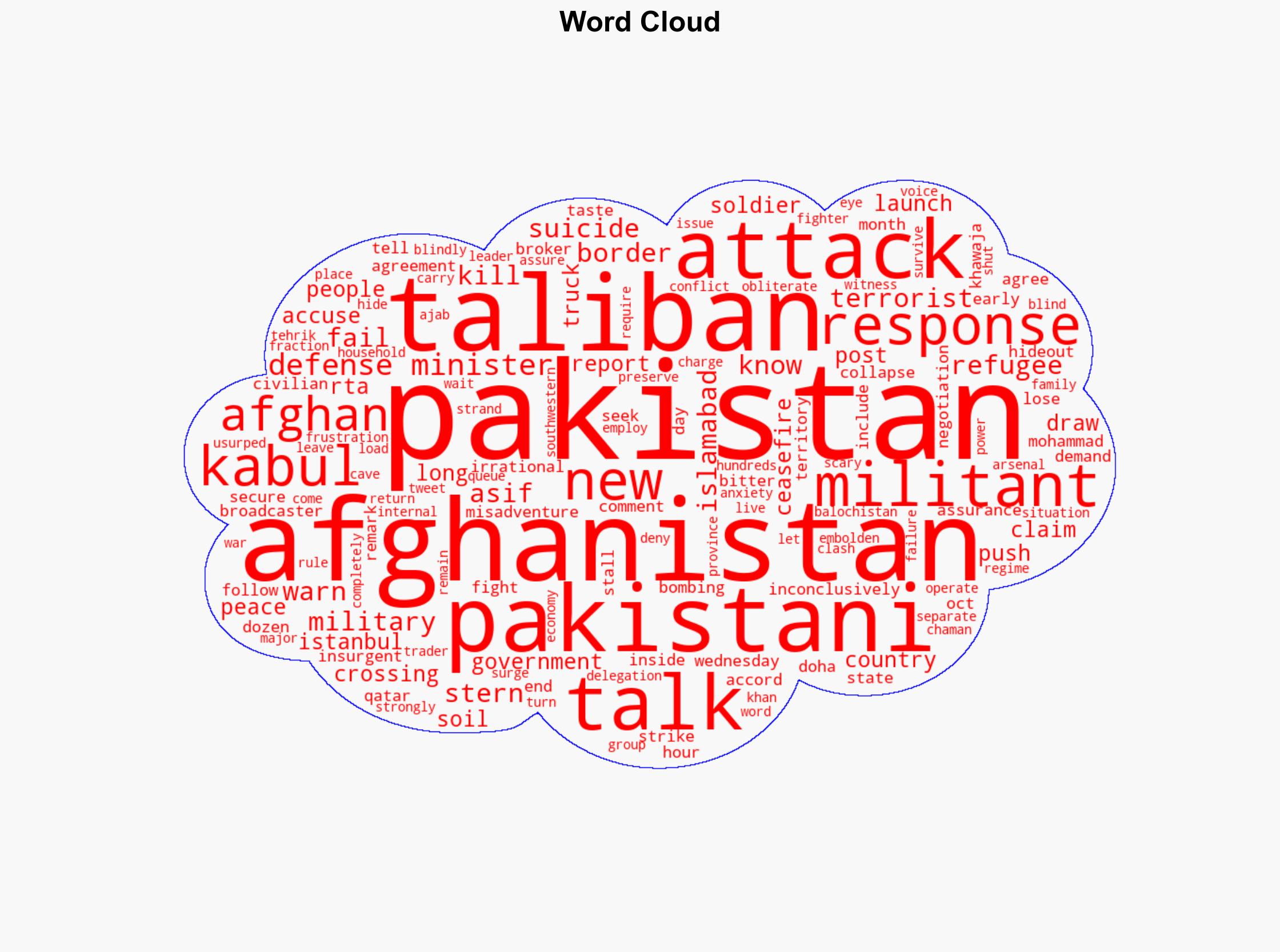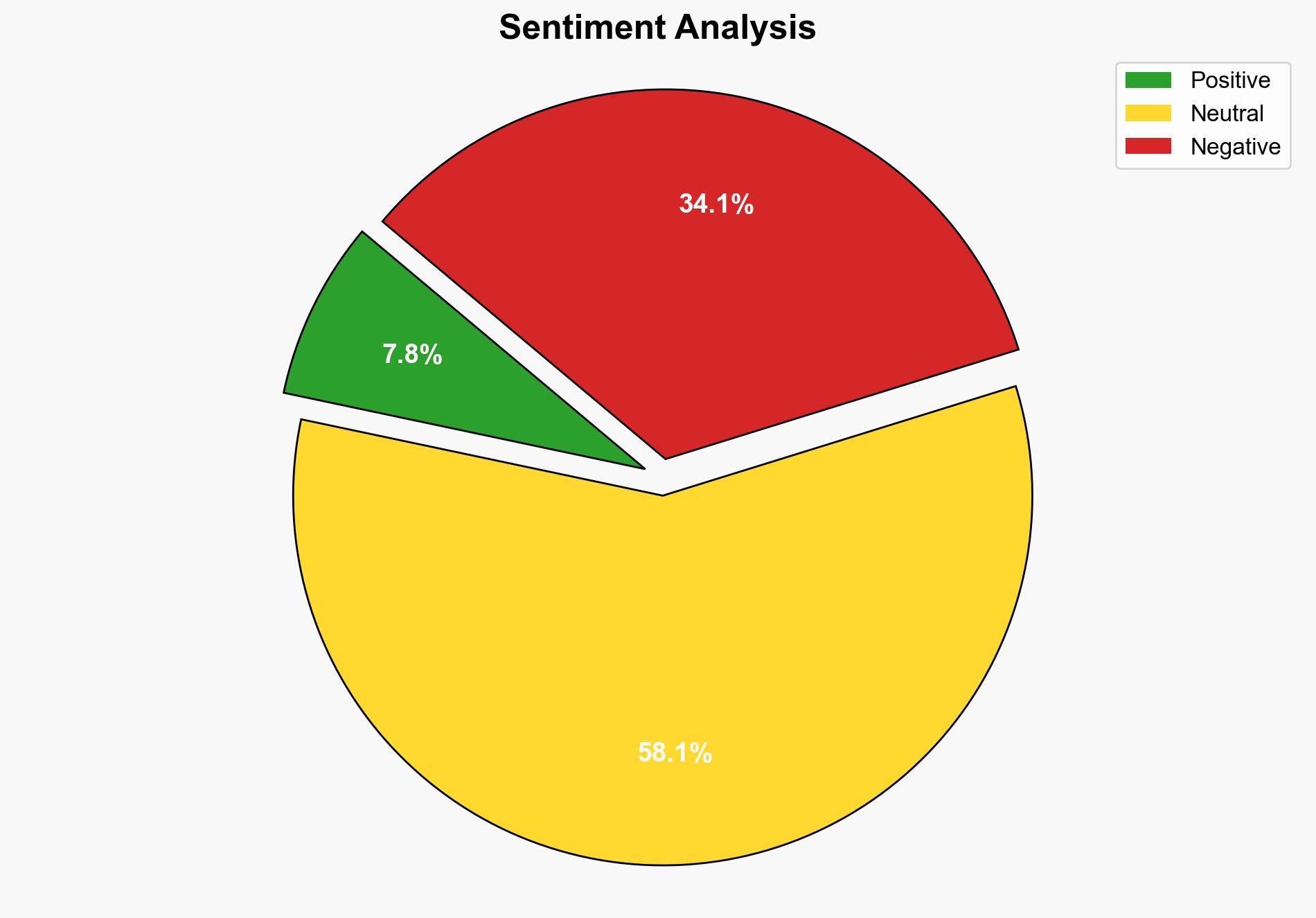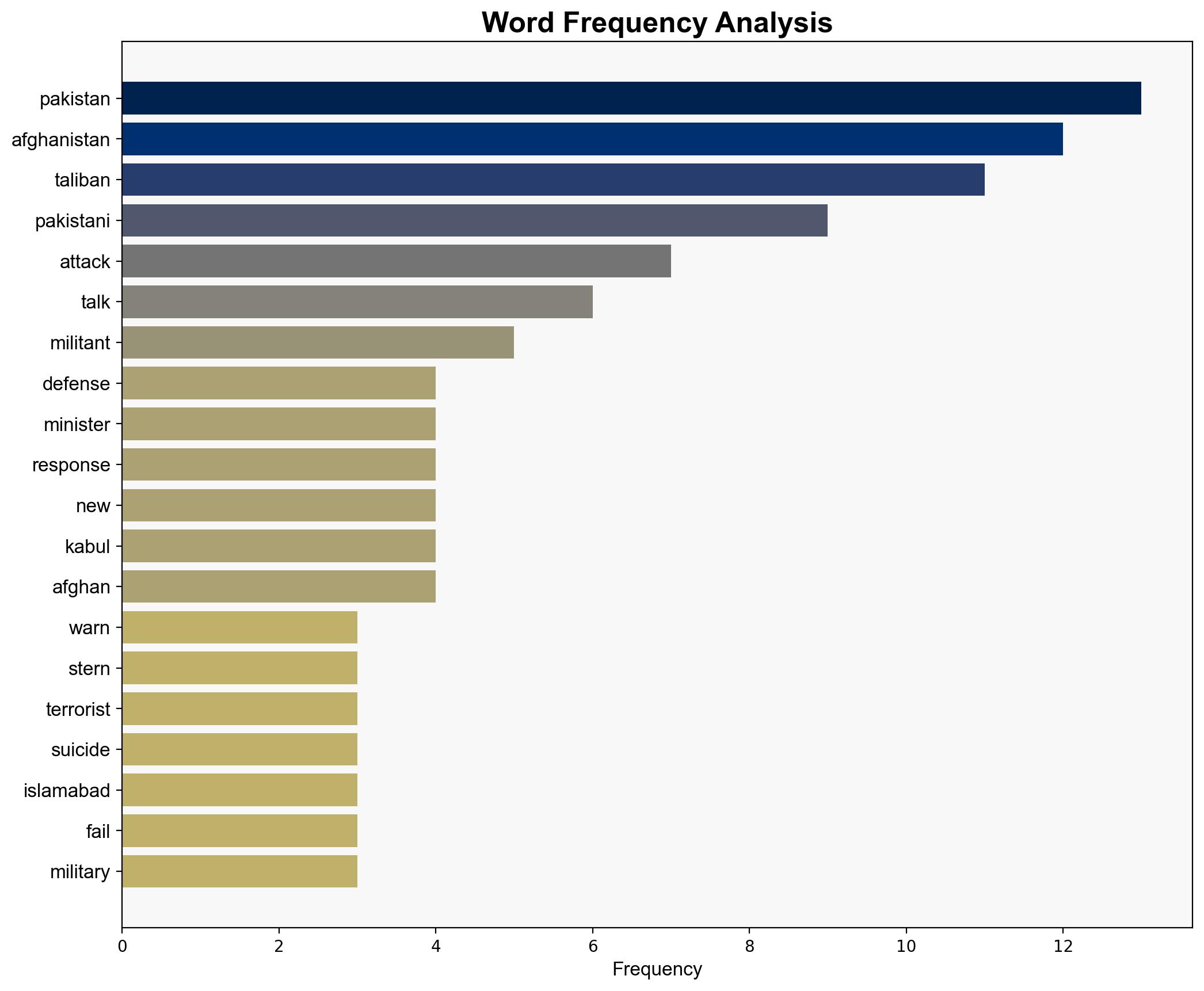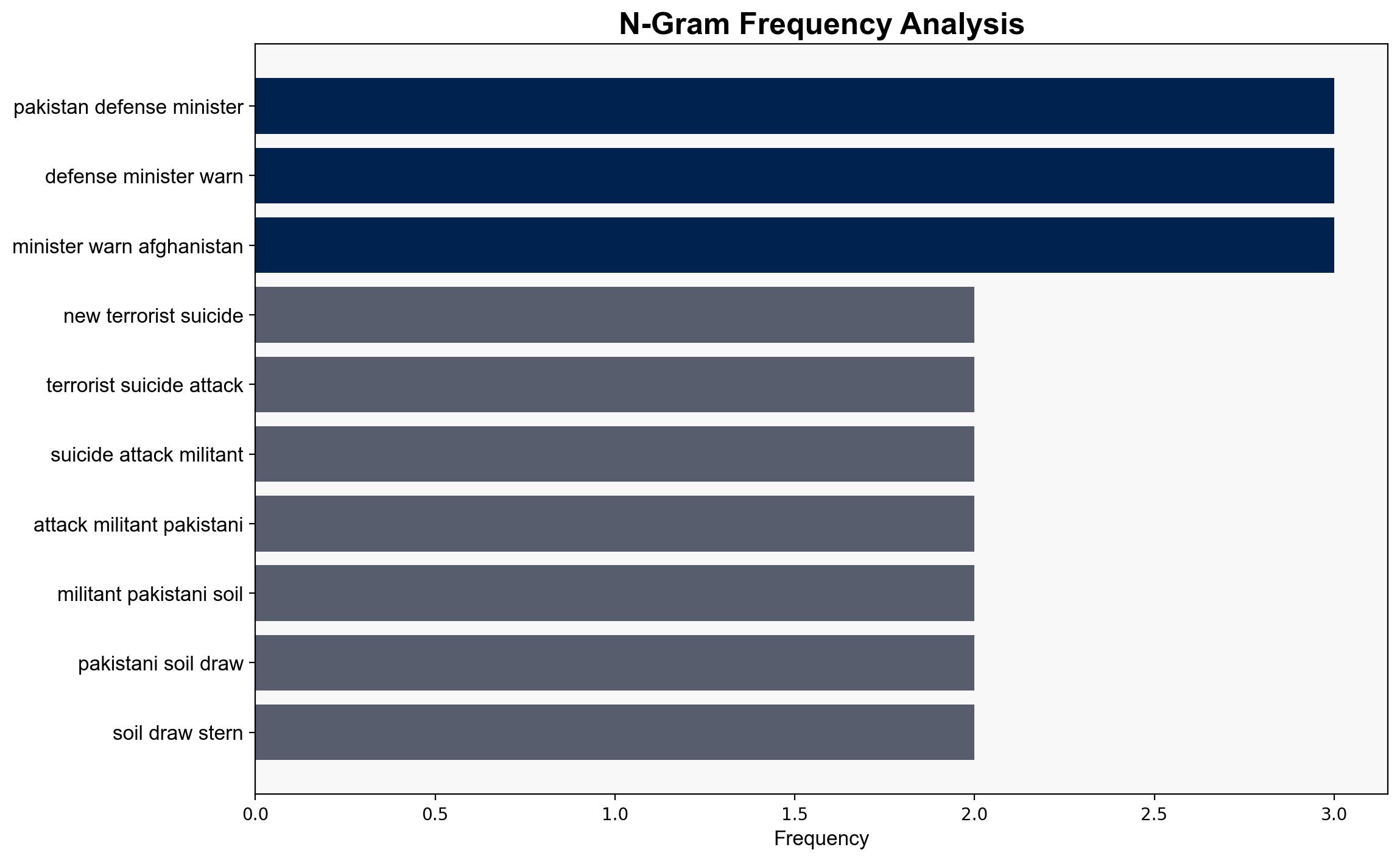Pakistan’s Defense Minister warns Afghanistan of stern response to any new militant attacks – ABC News
Published on: 2025-10-29
Intelligence Report: Pakistan’s Defense Minister warns Afghanistan of stern response to any new militant attacks – ABC News
1. BLUF (Bottom Line Up Front)
The most supported hypothesis is that Pakistan’s stern warning to Afghanistan is a strategic maneuver to pressure the Afghan Taliban into curbing the activities of the Tehrik-i-Taliban Pakistan (TTP) on Afghan soil. Confidence Level: Moderate. Recommended action includes diplomatic engagement with regional stakeholders to de-escalate tensions and reinforce counter-terrorism cooperation.
2. Competing Hypotheses
1. **Hypothesis A**: Pakistan’s warning is a genuine threat of military action aimed at deterring future militant attacks from Afghan territory.
– **Supporting Evidence**: The Defense Minister’s strong language and historical precedent of military responses to cross-border militancy.
– **Contradictory Evidence**: Previous ceasefires and diplomatic engagements suggest a preference for negotiation over escalation.
2. **Hypothesis B**: The warning is primarily a diplomatic tactic to pressure the Afghan Taliban into taking action against the TTP, rather than an immediate precursor to military action.
– **Supporting Evidence**: The emphasis on failed peace talks and the involvement of multiple countries in brokering ceasefires indicates a focus on diplomatic solutions.
– **Contradictory Evidence**: The closure of border crossings and military posturing could suggest preparation for conflict.
3. Key Assumptions and Red Flags
– **Assumptions**:
– Pakistan believes the Afghan Taliban has control over the TTP.
– The Afghan Taliban has the capability and willingness to curb TTP activities.
– **Red Flags**:
– The Afghan Taliban’s denial of harboring TTP militants suggests possible deception or lack of control.
– The lack of concrete evidence linking recent attacks directly to Afghan-based militants.
4. Implications and Strategic Risks
– **Escalation Risk**: Continued militant attacks could lead to military escalation, destabilizing the region and straining Pakistan-Afghanistan relations.
– **Economic Impact**: Border closures disrupt trade and could exacerbate economic hardships in both countries.
– **Geopolitical Dynamics**: Involvement of countries like Qatar in ceasefire talks indicates broader regional interests that could be affected by increased tensions.
5. Recommendations and Outlook
- Engage in multilateral diplomacy to encourage Afghan cooperation in counter-terrorism efforts.
- Enhance intelligence-sharing mechanisms between Pakistan and Afghanistan to address cross-border militancy.
- Scenario Projections:
– **Best Case**: Successful diplomatic negotiations lead to a renewed ceasefire and reduction in militant activities.
– **Worst Case**: Military confrontation escalates, leading to broader regional instability.
– **Most Likely**: Continued diplomatic efforts with intermittent skirmishes and border tensions.
6. Key Individuals and Entities
– Khawaja Mohammad Asif
– Tehrik-i-Taliban Pakistan (TTP)
– Afghan Taliban
7. Thematic Tags
national security threats, counter-terrorism, regional focus




